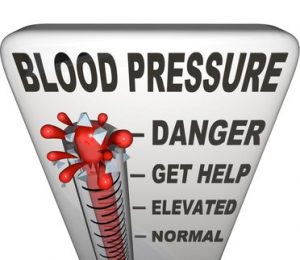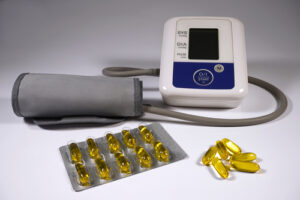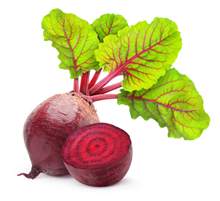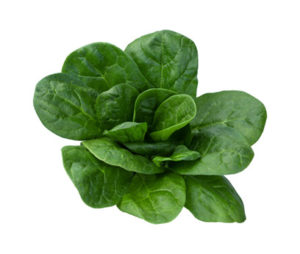What Does This Study Mean For You?
Author: Dr. Stephen Chaney
 I am continuing my series on recent omega-3 breakthroughs. Today I am going to cover a recent systematic review and meta-analysis (X Zhang et al, Journal of the American Heart Association, 11: e025071, 2022) that analyzed 71 double blind, placebo-controlled clinical studies with 4,973 subjects to determine the optimal dose of omega-3s needed to lower blood pressure.
I am continuing my series on recent omega-3 breakthroughs. Today I am going to cover a recent systematic review and meta-analysis (X Zhang et al, Journal of the American Heart Association, 11: e025071, 2022) that analyzed 71 double blind, placebo-controlled clinical studies with 4,973 subjects to determine the optimal dose of omega-3s needed to lower blood pressure.
But first, I will cover why this study is so important.
High blood pressure is called a “silent killer”. For most of us our blood pressure creeps up year after year, decade after decade. Factors like inactivity, obesity, smoking, poor diet, and excess alcohol consumption speed the increase.
Unfortunately, the symptoms of high blood pressure – things like headaches, anxiety, fatigue, and blurred vision – are easy to ignore or confuse with other health problems. And if these symptoms are ignored long enough, the result can be sudden death due to a stroke or heart attack.
Alternately, the consequence could be things like congestive heart failure, kidney failure, vision loss, and memory loss that change your quality of life forever. And once the genie is out of the bottle, it can never be put back again. The damage is permanent.
Omega-3s are often recommended for keeping blood pressure in the normal range. In fact, in 2019 the FDA approved a qualified health claim stating, “Consuming eicosapentaenoic acid (EPA) and docosahexaenoic acid (DHA) omega-3 fatty acids in food or dietary supplements may reduce the risk of hypertension (high blood pressure) and coronary heart disease.”
But the amount of omega-3s needed to reduce the risk of high blood pressure is uncertain. Previous studies have come up with conflicting results. That is the question the study I will discuss today was designed to answer.
How Was This Study Done?
 The investigators included 71 studies published between 1987 and 2020 with a total of 4,793 subjects ranging in age from 22 to 86 years in their systematic review and meta-analysis. The studies were all randomized, placebo-controlled trials looking at the effectiveness of omega-3 intake (primarily in the form of food or supplements containing both EPA and DHA) at lowering blood pressure. The placebo used in these studies was olive oil or other vegetable oils.
The investigators included 71 studies published between 1987 and 2020 with a total of 4,793 subjects ranging in age from 22 to 86 years in their systematic review and meta-analysis. The studies were all randomized, placebo-controlled trials looking at the effectiveness of omega-3 intake (primarily in the form of food or supplements containing both EPA and DHA) at lowering blood pressure. The placebo used in these studies was olive oil or other vegetable oils.
The studies included in this meta-analysis:
- Included omega-3 intake from both diet (mackerel, salmon, trout, or tuna) and supplements (fish oil, algal oil, or purified omega-3 ethyl esters).
- Were conducted in populations from Europe, North America, Australia and other Pacific islands, and Asia.
- Included subjects with normal blood pressure as well as those with high blood pressure.
- Ranged in length from 5 to 52 weeks (the average was 10 weeks).
- Included approximately equal numbers of men and women.
The meta-analysis excluded studies that:
- Lacked a placebo.
- Lasted less than 4 weeks.
- Included blood pressure medications.
- Included individuals with preexisting cardiovascular events.
The data from these trials was analyzed by a statistical method called a 1-stage cubic spline regression model. This is a recently developed statistical method which the investigators stated was superior to the statistical methods used in previous studies because it reduces the likelihood the results are influenced by investigator bias.
How Much Omega-3s Are Best For Blood Pressure?
 When the investigators combined the data from all 71 studies:
When the investigators combined the data from all 71 studies:
- The maximum reduction in both systolic and diastolic blood pressure was observed between 2g/d and 3 g/d.
- The dose response was non-linear. Doses above 3 g/d offered no additional benefit.
When the investigators looked at subgroups within the studies:
- Reduction in blood pressure was seen in both subjects with normal blood pressure and those with high blood pressure.
-
- However, reduction in blood pressure and the dose response were different in the two groups.
-
-
- In subjects with normal blood pressure the dose response was non-linear with the optimum reduction between 2 and 3 g/d.
-
-
-
- In subjects with high blood pressure the reduction in blood pressure was greater and the dose response was linear. The authors recommended a dose ≤ 3 g/d EPA + DHA for people with high blood pressure.
-
- Subjects with hyperlipidemia had a greater reduction in blood pressure than subjects with normal lipid levels, and the dose-response was linear.
- Subjects over the age of 45 had a greater reduction in blood pressure than subjects under the age of 45, and the dose response was linear.
- There were no significant differences between:
-
- Diet versus supplementation.
-
- Type of omega-3 supplement (natural fish oil versus purified ethyl ester).
-
- Sex.
The authors concluded, “This dose-response meta-analysis demonstrates that the optimal combined intake of omega-3 fatty acids for blood pressure lowering is likely between 2 g/d and 3 g/d. Doses of omega-3 fatty acid intake above the recommended 3 g/d may be associated with additional benefits in lowering blood pressure among groups at high risk of cardiovascular disease.”
I should probably explain the reasoning behind this conclusion.
- 79% of the studies included in this meta-analysis were performed with subjects who had normal blood pressure. This group had a non-linear reduction in blood pressure with an optimal reduction between 2 and 3 g/d EPA + DHA.
-
- Because of its size this group exerted a major influence on the results, which explains why the average results for the entire group showed a non-linear reduction in blood pressure with an optimal reduction between 2 and 3 g/d EPA + DHA.
-
- Subjects with normal blood pressure and normal lipid levels are at low risk of cardiovascular disease. The high-risk groups (high blood pressure, high cholesterol and/or triglyceride levels, and over 45) all had a linear dose response suggesting that doses above 3 g/d EPA + DHA may be optimal.
The authors also said, “We found associations [between omega-3 intake and blood pressure] among both hypertensive (high blood pressure) and nonhypertensive (normal blood pressure) groups, suggesting that omega-3 fatty acids could be beneficial for controlling blood pressure even before the onset of hypertension.
This means that the intake of omega3 fatty acids could have implications on a person’s future risk of stroke, ischemic heart disease, and all-cause mortality.”
In other words, they are saying their data suggests that EPA + DHA intakes in the 2-3 g/d range may prevent high blood pressure and the effects it can have on our health.
What Does This Study Mean For You?
 The authors of this study claim their data support a dose of 2-3 mg/d of EPA + DHA to prevent a future increase in blood pressure and all its associated health consequences. They also say that an EPA+ DHA dose ≥ 3g/d may be optimal for people who already have high blood pressure and/or other risk factors for heart disease.
The authors of this study claim their data support a dose of 2-3 mg/d of EPA + DHA to prevent a future increase in blood pressure and all its associated health consequences. They also say that an EPA+ DHA dose ≥ 3g/d may be optimal for people who already have high blood pressure and/or other risk factors for heart disease.
I am not an expert on statistics, so I cannot evaluate the author’s claim that their statistical method was superior to the methods used in earlier studies that gave conflicting results.
However, their results are consistent with recommendations of several major health and government agencies.
- For example, the European Food Safety Authority has said, “An intake of EPA and DHA of ~3 g/d is required to bring out the claimed hypotensive (blood pressure lowering) effect”.
- The FDA has approved qualified health claims stating that consuming EPA and DHA in foods or dietary supplements may reduce the risk of hypertension (high blood pressure) and coronary heart disease but did not recommend a dose to achieve these results.
- The American Heart Association has recommended ~ 1 g/d of EPA + DHA for patients with documented coronary heart disease and 2–4 g/day of EPA + DHA to lower triglycerides.
- And the American Heart Association features this article on their website with the headline, “Consuming about 3 grams of omega-3 fatty acids a day may lower blood pressure.”
When we contrast that with the fact that the average American gets less than 100 mg/d of EPA + DHA from their diet it is obvious that many Americans would likely benefit from increasing the amount of EPA and DHA in their diet.
The Rest Of The Story
 There are four additional points I would like to make:
There are four additional points I would like to make:
- In trying to explain the differences between dose response in high and low risk subjects, the authors said, “There could be mechanistic differences in bioavailability and efficacy of omega-3 fatty acid intake in these populations.”
In last week’s “Health Tips From the Professor” article I reviewed a study that measured individual differences in the utilization of EPA and DHA and concluded that a blood measurement called Omega-3 Index was a more reliable indicator of health outcomes than the dose of omega-3s consumed.
For that reason, I recommend personalizing your dose of EPA + DHA to reach an Omega-3 Index of 8%, which appears to be optimal for heart health and provides significant blood pressure reduction. This is an iterative process which will require frequent measurement of your omega-3 index and adjustment of EPA + DHA dose until you find the level of EPA + DHA supplementation you need to achieve an Omega-3 Index of 8%.
- This study and similar studies measure the health benefits of the long chain omega-3 fatty acids EPA and DHA. Short chain omega-3s from nuts, seeds, and plant oils are healthy, but their conversion to EPA and DHA is very inefficient.
- Both the FDA and American Heart Association recommend that doses of EPA + DHA above 3 g/d should be taken under a physician’s supervision because high doses can cause bleeding problems.
This is another reason for basing your intake of EPA + DHA on Omega-3 Index rather than on the dose recommended by a clinical study. Based on dozens of clinical studies, an Omega-3 Index of 8% appears to be safe unless you have a bleeding disorder or are on a blood-thinning medication (see below).
- If you are on a medication to thin your blood, you should consult with your physician before increasing or decreasing your omega-3 intake because changes in dietary omega-3s can affect the optimal dose of medication they prescribe.
The Bottom Line
A recent study looked at the dose of EPA + DHA needed to lower blood pressure.
- The study concluded that a dose of 2-3 mg/d of EPA + DHA was optimal for preventing a future increase in blood pressure and all its associated health consequences.
- It also concluded that an EPA+ DHA dose ≥ 3g/d was optimal for lowering blood pressure in people who already have high blood pressure and/or other risk factors for heart disease.
- Based on previous studies, I recommend optimizing your omega-3 index rather than relying on a dose of EPA + DHA that may not be right for you.
For more details about this study and what it means to you read the article above.
These statements have not been evaluated by the Food and Drug Administration. This information is not intended to diagnose, treat, cure, or prevent any disease.
______________________________________________________________________________
My posts and “Health Tips From the Professor” articles carefully avoid claims about any brand of supplement or manufacturer of supplements. However, I am often asked by representatives of supplement companies if they can share them with their customers.
My answer is, “Yes, as long as you share only the article without any additions or alterations. In particular, you should avoid adding any mention of your company or your company’s products. If you were to do that, you could be making what the FTC and FDA consider a “misleading health claim” that could result in legal action against you and the company you represent.
For more detail about FTC regulations for health claims, see this link.
https://www.ftc.gov/business-guidance/resources/health-products-compliance-guidance
About The Author
Dr. Chaney has a BS in Chemistry from Duke University and a PhD in Biochemistry from UCLA. He is Professor Emeritus from the University of North Carolina where he taught biochemistry and nutrition to medical and dental students for 40 years. Dr. Chaney won numerous teaching awards at UNC, including the Academy of Educators “Excellence in Teaching Lifetime Achievement Award”. Dr Chaney also ran an active cancer research program at UNC and published over 100 scientific articles and reviews in peer-reviewed scientific journals. In addition, he authored two chapters on nutrition in one of the leading biochemistry text books for medical students.
Since retiring from the University of North Carolina, he has been writing a weekly health blog called “Health Tips From the Professor”. He has also written two best-selling books, “Slaying the Food Myths” and “Slaying the Supplement Myths”. And most recently he has created an online lifestyle change course, “Create Your Personal Health Zone”. For more information visit https://chaneyhealth.com.
For the past 45 years Dr. Chaney and his wife Suzanne have been helping people improve their health holistically through a combination of good diet, exercise, weight control and appropriate supplementation.





